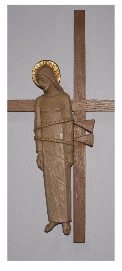 Chris
McDonnell, UK
Chris
McDonnell, UK
chris@mcdonnell83.freeserve.co.uk
Previous articles by Chris
Comments
welcome here
March
1, 2017
How
free is free?


It
is a simple phrase really, ‘freedom
of speech’, claimed by so many as a pillar of their democracy and
protected by the First Amendment of the American Constitution. It is a
phrase that many value and only a few blatantly ignore.
The freedom we give to
the Press is born out of a recognised right, often hard-won, to be
critical of those elected to political power, both locally and nationally.
But of course it is a freedom that comes with responsibility. When that
responsibility is abused, the loss is significant.
Back in the 70s, when
the Watergate scandal broke in the
US
, it was down to the graft and honesty of two
journalists from the Washington Post, Carl Bernstein and Bob Woodward.
Backed by an Editor, Ben Bradlee, whose professionalism was never in
question, when they brought him new evidence of malpractice, he wouldn’t
publish until they found a second source to support their claim. Those
surrounding the President, Richard Nixon, lied and lied again in an
attempt to cover their tracks, with the continual question hovering in the
background ‘What did he (Nixon)
know and when did he know it?’. That is why an informed challenge to
the current holder of that office is so necessary, for his grasp of what
is meant by the truth is uncertain to say the least. Bernstein has
recently suggested that he is more dangerous than Nixon.
The demand for an
answer, issued by Pilate at Passover time could well provide the keynote
for our Lenten meditation –‘What is truth?’ - three small words, brimful with meaning. Honesty
in both word and action is precious. It accounts for our own reliability
in the perception of others, for our personal integrity does not come
cheap.
If we are free to write and speak, with respect for others who may
not agree with us, then we must also have an inner freedom, the freedom of
conscience. That freedom is
inviolable. Over the years it has been challenged time and again when
conformity was demanded, whether religious, political or national. History
is littered with the names of those whose faithfulness to their conscience
has led them into immense difficulty, with imprisonment and death the
final outcome for many. Our Church is not without criticism in regard to
such malpractice.
In
1975, with the Troubles in
Ireland
growing by the day, Seamus Heaney wrote the memorable
line “Whatever you say, say nothing”.
His poem opens with the words,
“I'm
writing just after an encounter
With an English journalist in
search of 'views
on the Irish thing' “
For many people in
countries across the world, talking to the press is dangerous and if it is
done, then there is a degree of subterfuge in the encounter. That
emphasises the ever-present risk we take when freedom is a principle in
our lives.
Conscience is the
touch-stone, but we have a responsibility to ensure that our conscience is
informed. We should seek out facts behind an argument, weigh the pros and
cons and then act accordingly. We may seek the advice of friends and those
whose opinions we respect, whose experience is such that they have
something to contribute. In the end, we have to stand tall in our opinion.
Listening is much more
than hearing a pattern of background noise. It demands attention to detail
before a response is made. Listening is also a courtesy that we should
offer to those who engage us with their views, whether we agree with them
or not. Without listening, that cannot be achieved.
We live in a time when
Francis is asking for ‘a listening Church’. How are we to respond to
his challenge? How do we listen to each other within our parish community
and beyond? Further, how do we listen to those whose faith and culture is
different to ours? How do we welcome the stranger?
This is why the nature
of our response to the chaos of the early weeks of a new Presidency in the
US
is so critical. Important moral issues are at stake.
The attack on a free Press, by taking them to task for every critical
comment, is a worrying development. It has of course given a new impetus
to satire, both written and networked. Very often poking fun at
pretentious arguments can be a highly successful way of combating
stupidity.
When we have differing
opinions and views within the Church, we should listen to each other with
charity and act with care and consideration. Walking the weeks of Lent
together, appreciating the challenge thrown at the Lord by Pilate may well
offer a daily reminder to all of us in these troubled days.
END
----------------------------------------
 Chris
McDonnell, UK
Chris
McDonnell, UK Chris
McDonnell, UK
Chris
McDonnell, UK
